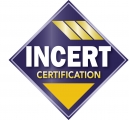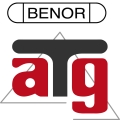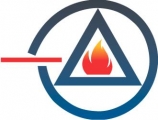Smoke kills! Every year, dozens of people lose their lives in a fire in their home, mainly due to asphyxiation from smoke they inhale in their sleep. A simple smoke alarm could have alerted them to the danger within minutes. However, smoke alarms are highly susceptible to producing false alarms when installed in dusty atmospheres: boiler rooms, kitchens, garages, cellars and attics. In these cases, heat detectors are recommended for the protection of such areas.
Heat detectors are therefore an effective means of fire protection. They must be CE marked in accordance with the EU's Electromagnetic Compatibility Directive or the Radio Equipment Directive. Contrary to what most consumers think, this CE marking does not attest to the device's detection performance. It only guarantees a minimum immunity level against electromagnetic disturbances, so that it can be sold in the European Union. Furthermore, some have a sound alarm that is not loud enough to wake up the home's occupants. Indeed, studies show that a high sound level is fundamental for waking children from their sleep. This is why BOSEC certification of heat detectors-alarms remains the benchmark for guaranteeing detection and alarm performance.
Effective detection and alarms require the installation of a detector or, better yet, a network of interconnected detectors, whose reliability is certified by BOSEC: a voluntary seal of approval that attests to their quality.
We conduct tests on heat alarms in accordance with the standards and specifications below, so that they can be BOSEC certified.
BS 5446-2 Fire detection and fire alarm devices for dwellings — Part 2: Specification for heat alarms
NTN 167 L Alarm devices - Additional requirements for the BOSEC mark
You would like to receive further information about our test: laboratoires@anpi.be
You would like to receive a quotation: sales@anpi.be






